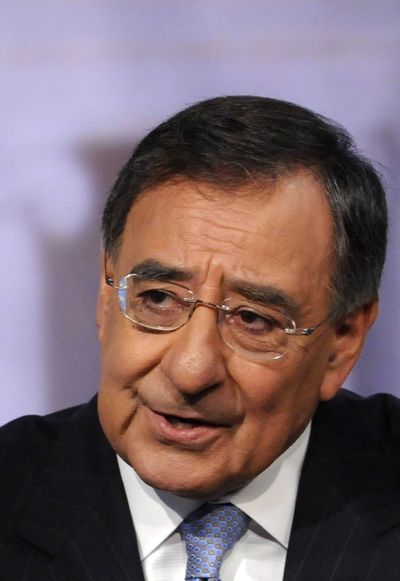CIA chief admits slow war progress
He defends administration’s Afghanistan strategy

WASHINGTON, D.C. – Days after President Barack Obama installed a new commander in Afghanistan, CIA Director Leon Panetta conceded Sunday that progress in the war has been “harder” and “slower than I think anyone anticipated.”
His assessment comes as top U.S. officials have acknowledged the difficulty the administration could face as it seeks to follow through on Obama’s pledge to begin drawing down troops next July. If progress continues to lag, Obama is likely to face intensified pressure from Gen. David Petraeus not to draw down quickly, as well as a countervailing push by Vice President Joe Biden to switch to a smaller military footprint.
A debate over the administration’s war strategy is already under way, as Democratic and Republicans lawmakers clashed Sunday over whether Obama should rethink his pledge to begin withdrawing troops next summer as he dispatches a new commander to oversee the war.
“I’m against a timetable,” Sen. John McCain of Arizona, the top Republican on the Senate Armed Services Committee, said on NBC’s “Meet the Press.”
But Sen. Carl Levin, D-Mich., the committee chairman, said on CBS’ “Face the Nation” that a timetable is critical to show “urgency to the Afghan government that they must take responsibility … for their own security.”
The dispute over the start of the U.S. withdrawal is likely to be a prominent issue when Army Gen. David H. Petraeus faces senators Tuesday in a hearing on his confirmation as the new U.S. commander in Afghanistan. In an interview with ABC News’ “This Week,” Panetta defended the administration strategy and said the key would be to build up Afghan army and police units so they could take over for U.S. troops.
Panetta offered a mixed assessment of the strength of the Taliban, arguing its leaders in Pakistan had been weakened but the movement’s ability to carry out attacks had increased.
“In some areas with regards to some of their directed violence, they seem to be stronger, but the fact is, we are undermining their leadership, and that I think is moving in the right direction,” he said.
He also played down the prospects for a negotiated settlement to the conflict in Afghanistan, a course Afghan President Hamid Karzai and Pakistani officials said is the only workable approach to bringing the war to a rapid end.
Underscoring Karzai’s beliefs and the growing role of Pakistan are reports of recent negotiations with Afghan insurgent groups involving top Pakistani officials, including Army Gen. Ashfaq Parvez Kayani and intelligence chief Ahmed Shuja Pasha. They reportedly have met with leaders of the Pakistan-based Haqqani network, which has battled allied forces in Afghanistan.
Panetta disputed recent reports that terrorist groups under the Taliban umbrella, including the Haqqani network, are interested in reaching a deal with the Afghan government under which they would sever ties to al-Qaida and accept the authority of the Kabul government.
“We have seen no evidence that they are truly interested in reconciliation,” he said, adding that unless they are convinced “that they are going to be defeated” a meaningful settlement would be difficult to achieve.